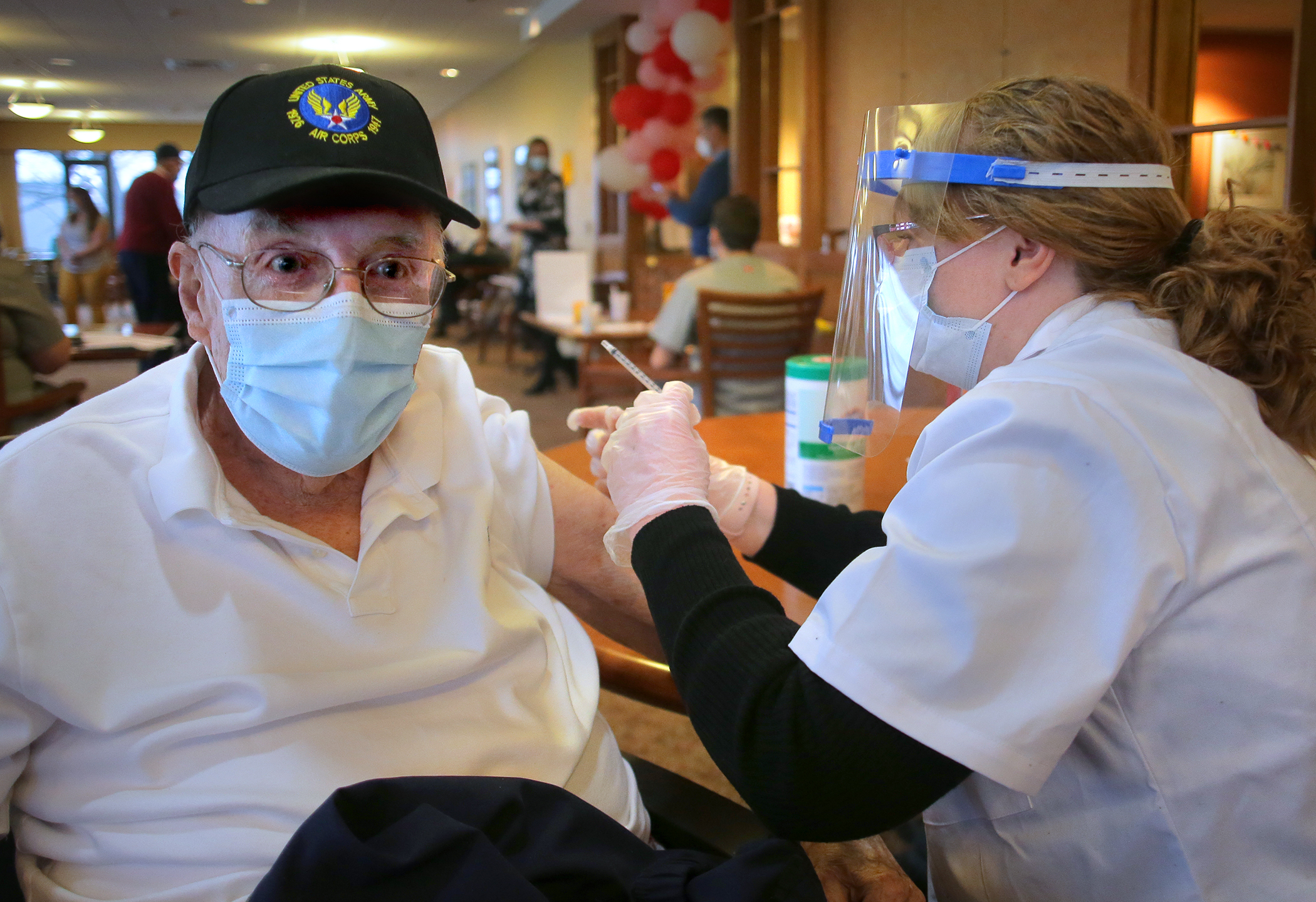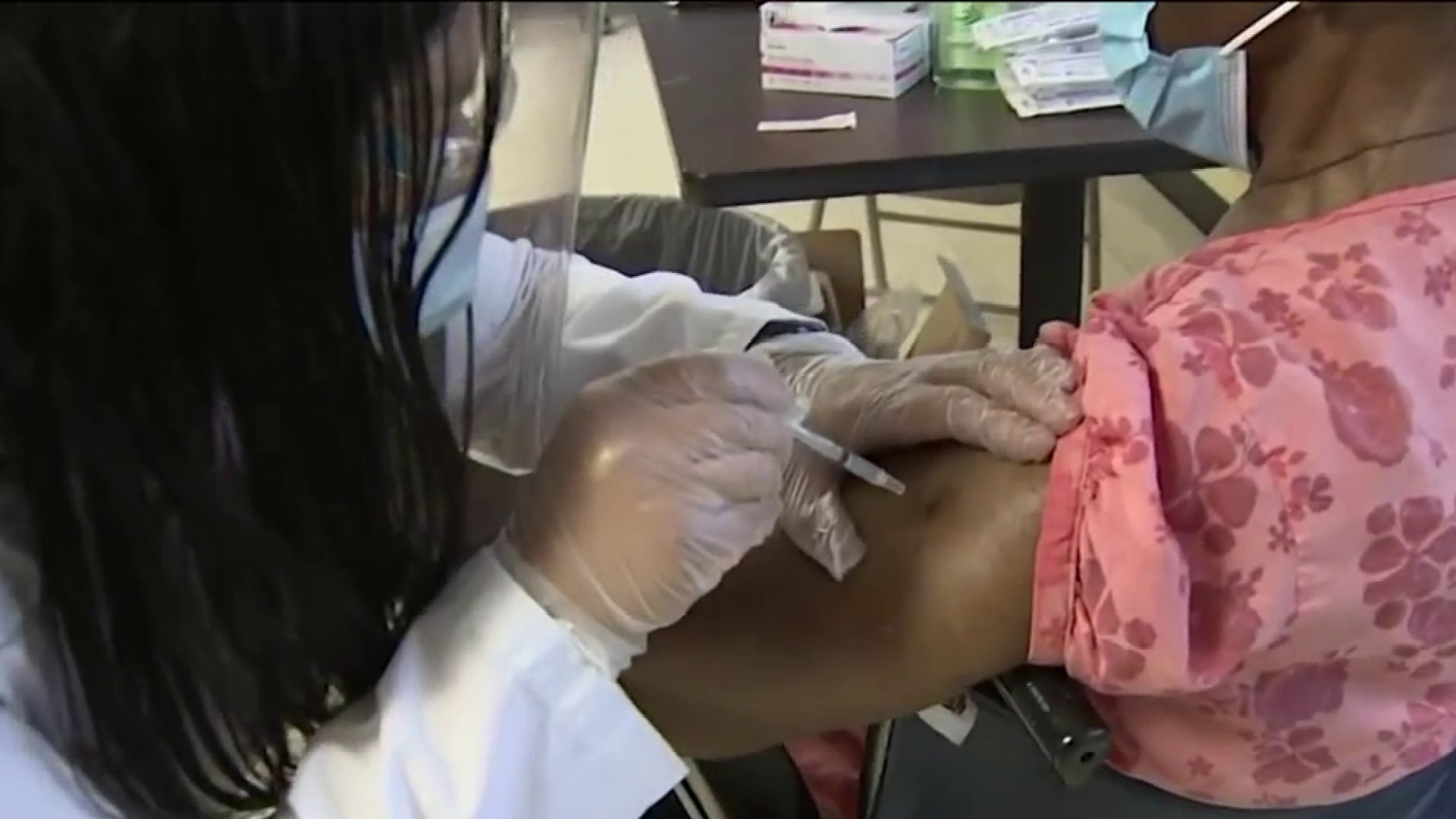Although the Baker administration has described the vaccine rollout as "bumpy," a senior Massachusetts Department of Public Health official said Wednesday that a target to make doses available to the general public starting in April is still in play.
Kevin Cranston, DPH's assistant commissioner and director of the department's bureau of infectious diseases and laboratory sciences, said during a virtual panel discussion that the original timeline unveiled last month remains "reasonable."
"I do believe that's reasonable. We're well along our path," Cranston replied when asked if the April target for more widespread vaccine availability could still be achieved. "Given the efficiency of the process to date, I actually believe those are reasonable timeframes."
Get top local stories in Boston delivered to you every morning. Sign up for NBC Boston's News Headlines newsletter.
Gov. Charlie Baker's administration has faced criticism from public health experts and lawmakers, including Senate President Karen Spilka, that the state's phased vaccine distribution has been confusing and stuttered.
Through the weekend, Massachusetts had received more than 876,000 doses of the two COVID-19 vaccines authorized for use and administered more than 448,000 first and second doses. The Bay State ranks 28th in doses administered per capita, according to the Centers for Disease Control.
Baker defended his approach on Tuesday, arguing that the deliberate plan targeting specific communities and populations was "the right decision out of the gate."
Vaccinations in Phase 1 are ongoing, and the second phase of eligibility is set to begin next week when vaccines become available to residents 75 and older.
Having trouble getting a coronavirus vaccine in Massachusetts? Submit a tip to our investigators here.
So far, Cranston said Wednesday, Massachusetts is about a third of the way toward completing its Phase 1 vaccination goal. He anticipated the state will finish that first phase target by mid- to late February.
Cambridge Health Alliance CEO Assaad Sayah told the panel that Massachusetts has ample capacity to administer vaccines, particularly because the range of health care workers who can do so includes pharmacists, paramedics and nurses.
More on COVID Vaccines in Mass.
"We have enough bandwidth and workforce to be able to deliver the vaccine," Sayah said. "It's going to be a matter of logistics, it's going to be a matter of education, and a matter of having enough vaccine to roll it out."
On Tuesday, the Biden administration announced it would boost the doses available to states and territories by about 16% for the next three weeks, order another 200 million doses, and offer three weeks of "look-ahead" information for availability.
Moderna and Pfizer, the two companies with vaccines approved for use in the United States, are working at "full throttle" to produce doses and meet their contractual obligations, Biotechnology Innovation Organization Vice President of Infectious Diseases and Diagnostics Policy Phyllis Arthur said during Wednesday's panel.
She forecast that the world will be able to reach a "new normal" in 2021, but that some aspects of life during the pandemic are here to stay.
"We'll have a new normal in that we'll all be better about washing our hands and thinking about infectious diseases in a permanent way," Arthur said. "They're always around."
Cranston and Sayah both cited a specific target: 80% of Massachusetts residents vaccinated.
"I am hopeful about the 80%, but I know it's a high bar to hit so it's going to take a lot of effort," Cranston said.



